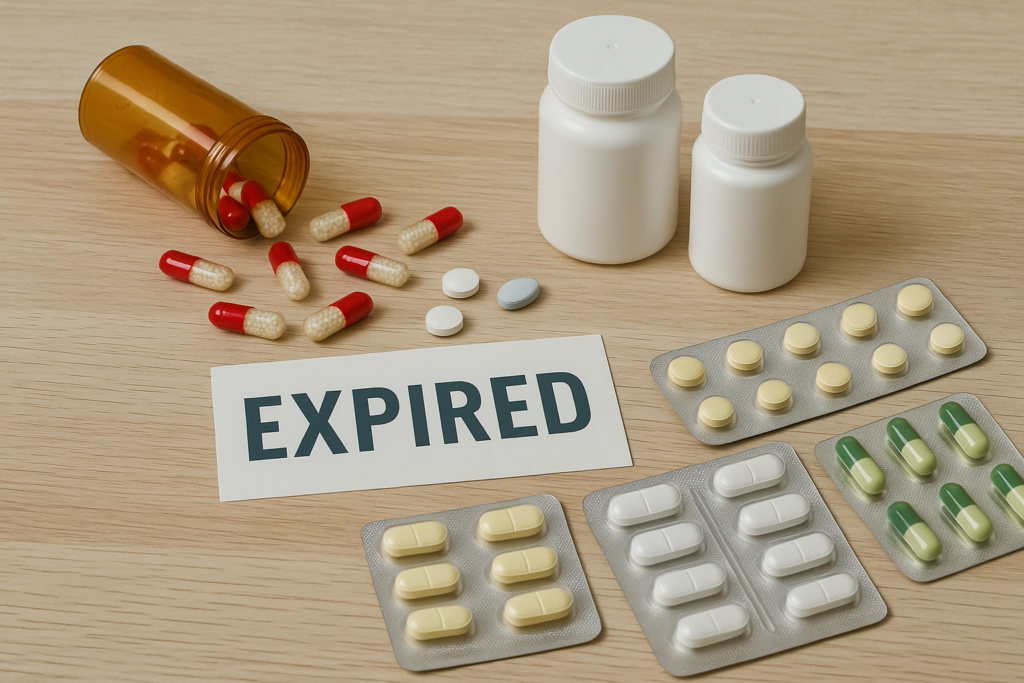As India continues its push toward digital health, environmental responsibility, and community care, a silent but pressing issue looms large: the improper disposal of expired and unused medicines. Across urban and rural homes, strips of expired antibiotics, painkillers, and syrups quietly make their way into household bins, water systems, and even landfills—posing risks to public health, environmental safety, and future generations.
In the absence of a nationwide pharmaceutical take-back policy, Indians are left largely to navigate safe disposal on their own. The result is often unintentional but harmful—drugs flushed down toilets or discarded with kitchen waste, where they leach into the soil or contaminate groundwater.
A Hidden Contaminant in Water and Soil
Environmental experts warn that traces of pharmaceuticals, especially antibiotics and hormonal drugs, are increasingly being detected in rivers and water treatment systems. These remnants not only pose a danger to aquatic life but also contribute to the global crisis of antimicrobial resistance (AMR)—a phenomenon in which bacteria evolve to resist medical treatment.
“Medicines, once expired, are chemical pollutants,” says a senior environmental toxicologist based in Delhi. “The damage is subtle, long-term, and largely invisible—until it becomes irreversible.”
The World Health Organization (WHO) has identified AMR as one of the top ten global public health threats. Improper medicine disposal is now considered a contributing factor in its escalation.
Individual Choices, Collective Impact
Despite the lack of formal disposal infrastructure, concerned citizens and non-profits are stepping in. Community-driven models, such as Kerala’s nPROUD (Novel Programme for Reuse of Unused Drugs), have gained national attention. The initiative collects unused and unexpired medicines for redistribution to those in need—offering a dual solution to both waste and accessibility.
Similarly, NGOs such as Aware India Foundation in Hyderabad and the Indian Red Cross Society in multiple states accept unexpired, sealed medications under specific conditions. While these efforts are modest in scale, they represent an evolving ecosystem of grassroots solutions.
Households are also being advised to dispose of expired medicines by rendering them unusable—crushing tablets, mixing them with coffee grounds or used tea leaves, sealing in a bag, and discarding with regular trash. Removing personal labels from packaging is another suggested step to protect individual privacy.
The Role of Pharmacies and Institutions
Some pharmacy chains, including Apollo and MedPlus, have begun informal collection of expired medicines from customers, though such initiatives remain unregulated and inconsistent. Experts believe that pharmacies, hospitals, and even local clinics can play a pivotal role in expanding access to safe disposal systems.
Medical institutions and diagnostic labs that generate large volumes of pharmaceutical waste are already bound by law to use Central Pollution Control Board (CPCB)-authorized bio-medical waste management services. Advocates now call for similar compliance standards to be extended to residential and retail-level drug disposal.
Dr. Sujata Reddy, a healthcare policy analyst in Bengaluru, notes, “We need a centralized, government-led program that makes medicine disposal as routine and easy as e-waste collection. Until then, the risk continues to grow silently.”
Looking Ahead
In a country where millions still lack access to essential medication, the irony of widespread medicine wastage and pollution is stark. Proper disposal isn’t just about decluttering a home cabinet—it’s about protecting ecosystems, preventing disease, and building a more responsible healthcare system.


